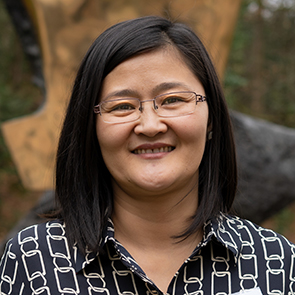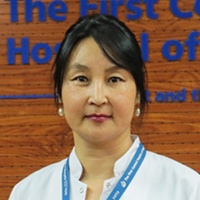When young physicians participate in an OMI program, they leave equipped with state-of-the-art medical information, tips and tricks from the most experienced specialists, and a network of colleagues and mentors whom they may call on for the rest of their careers for advice and support. This makes them ideally qualified to take on leadership positions in their own countries for the benefit of their patients.
Fellowships
Observerships
Since the year 2000, fellows from Mongolia have been participating in OMI seminars and OMInars, gaining and sharing knowledge in their respective medical specialties. More than 600 Mongolian fellowships, nearly 110 observerships and three satellite symposia have taken place until now.

Our local coordinator in Mongolia, Enkhtuya Byambasuren, is very dedicated to support physicians and enable them to share their newly gained knowledge with their colleagues in their home country.
The OMI is glad to announce that from 502 Mongolian fellows, 97 work in leadership positions in the Mongolian healthcare system:
- Parliament, Ministry of Health: 4
- UN Organizations (WHO, UNICEF), International Organizations: 11
- Center for Health Development, MoH and MoD: 4
- Mongolian National University of Medical Sciences: 12
- Directors of Hospitals: 10
- Managers: 7
- Chief of Departments: 331
- Executive Directors of Professional Associations: 3
- Directors of Private Clinics and Laboratories: 15
The success of our Mongolian fellows is impressive, and the system of their local coordinator may contribute to this exceptional success story. After visiting an OMI seminar or OMInar, the fellows have to prepare a summary report and a video lesson which are then published on MPHPA and National Doctors Group Facebook pages, so that all colleagues can access the knowledge.
Fellows’ video lessons project in Mongolia
Once fellows complete an OMI seminar, they deliver the content of the seminar, along with informative lectures, to co-workers in their divisions, departments and hospitals. The majority of them have stated that the seminars are very informative, effective, impressive and that they have learned a lot of updated scientific information, such as state-of-the-art knowledge and training methodologies. Using the aforementioned lectures, OMI Mongolia initiated the Fellows’ video lessons project. The goal of the project is to deliver at least one lecture from each medically specialized seminar to other doctors and health professionals in Mongolia.
Fellows select and translate one topic from their attended seminars that they believe will be useful for other doctors and health professionals. Then, they record a video lesson to be presented through www.cme.mn, a website with health related educational resources that is available to all doctors and health professionals in Mongolia. Currently, more than 25 video lessons have been recorded and presented on the website.

Byambasuren Luvsandagva, MD
I was fortunate enough to attend two OMI seminars and to participate in the OMI observership Program twice. I will always be grateful for those opportunities because they helped to improve my professional skills. The program helped me learn about new medical practices being used as well as some recent medical achievements. Predominantly, my area of interest is the development of the otolaryngology sector in Mongolia. My OMI mentor from Salzburg, Dr. Gerd Rasp, helped me to get in touch with MED-EL, a hearing device manufacturer, which enabled my hospital to obtain a selling license. As a result, we successfully completed surgeries for two deaf children to improve their hearing capabilities. Additionally, I completed a soundbridge surgery in 2011 and bonebridge surgery in 2014; these surgeries were the first of their kind in Mongolia. As of now, I have successfully completed these surgeries more than 130 times. Finally, I would like to share that these successes have made a significant impact in the otolaryngology sector for Mongolia, as well as on a world-wide scale, and have helped to improve the symptoms of many deaf people.